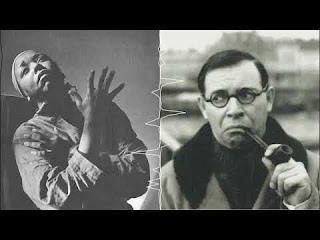Apart from a brief trip to the post-office I haven’t left the house since Monday. I have been quite content staying in with my music and books. I am still trying to finish reading Nausea but was pleased to put Jean Paul Sartre aside for a few hours yesterday when a book arrived in the post from a friend in Ireland. It is called Small Things Like These by Claire Keegan. I hadn’t heard of Claire before, but I am very grateful to my friend because I absolutely loved this book. I’ll just tell you a little about the author. She was born in County Wicklow in 1968, the youngest in a large catholic family and was brought up on a farm. She published Antarctica her first collection of short stories in 1999 to great acclaim. Her previous book Foster won many awards and is on the curriculum of the school leaving certificate in Ireland. Small Things Like These is her most recent book, published earlier this year. I would describe it as a novella because you can read it in a few short hours, as I did yesterday. Published by Faber it is a very attractive book even to hold in your hand. The dust jacket design is from a painting by Peter Breugel the Elder called Hunters In The Snow. It is a desolate scene of an unsuccessful hunt and crows can be seen on the branches of bare trees. Crows also figure prominently in the pages of this book, and I see them as an ill omen. It is a very apt and clever design because it sets the scene and the mood of the book even before you have started to read.
The timing of this book arriving is perfect because it is set in the town of New Ross in the days leading up to Christmas 1985. The protagonist in the story is a coal & timber merchant called Bill Furlong. He was born to an unmarried mother who died when he was twelve. He was brought up by his mother’s kindly employer, a lady called Mrs Wilson. He worked hard to build up his business, got married and has five daughters. Although on the surface he has a happy marriage and feels quite lucky and content, he often wonders who his father is. He treats his workers well and shows kindness to those less fortunate, but his wife seems to think he is too soft and should just look after his immediate family because the economy was going through a tough time in 80s Ireland. One day while out delivering coal he makes a discovery that leads him to a moral dilemma.
I won’t tell you anymore about the story because I hope you
will read it for yourself. Some of the story makes quite grim reading, but I
found the conclusion very spiritually uplifting. It is about having the courage
to do what is right, rather than worry about what others may think. We know
from history that evil thrives when people look the other way. I loved
reading this book because of Claire Keegan’s style of writing. It is
very simple. A lesser writer might have made the story three times as long.
With Claire Keegan every sentence is to the point, concise and carefully
constructed. Even so, the characters and landscape are portrayed beautifully. You
feel that you know this place and people. I wonder if the youngest daughter Loretta
was based on Claire Keegan herself because she seems to know her very well.
There is a lot of symbolism in the story, apart from the crows. and just one sentence can contain a whole lot of meaning. In one scene Bill gets lost and sees an old man with a scythe cutting thistles and asks him where the road leads to, “This road will take you to wherever you want to go, son”.
I learned a couple of Irish words reading the book. I think
leanbh means baby and puckaun is a goat. Also, Bill’s friend Ned
sings a song called The Croppy Boy. I looked that up as well and
found the song came from the rebellion of 1798 and a croppy means a
rebel. I wanted to hear the song and found a beautiful live version from 1965 by
a singer I didn’t know called Anne Byrne who sounds to me like an Irish Joan
Baez. I have shared it below if you would like to hear it. I can’t
think of anything else to say now apart from that I highly recommend this book
and I look forward to reading more stories by Claire Keegan.



















